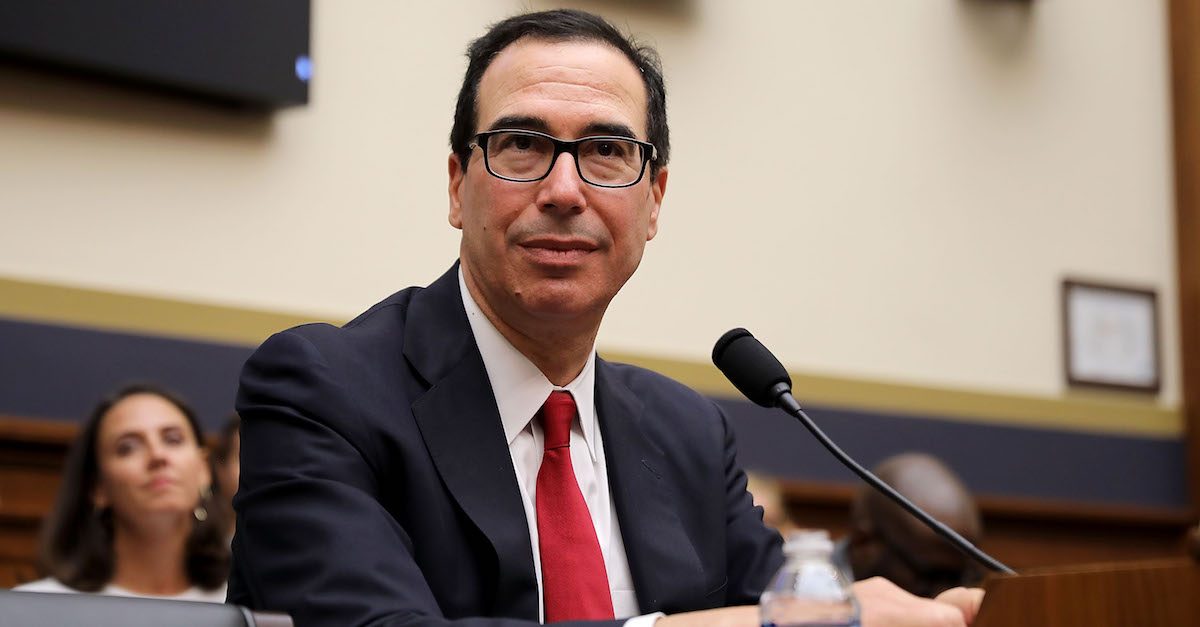
A federal judge on Friday denied the Trump administration’s attempt to dismiss a lawsuit filed by the U.S. citizen children of several undocumented immigrants whose parents were denied benefits distributed under the Coronavirus Aid, Relief, and Economic Security (CARES) Act due to their immigration status.
In a 17-page opinion, U.S. District Judge Paul W. Grimm of the District of Maryland reasoned that the Government was not immune from the allegations in the complaint and that the families had standing to file the lawsuit.
Under the CARES Act, eligible individuals were provided with up to $1,200, along with an additional $500 for each qualifying child under age 17. However, the text of the Act mandated that recipients of the payments have a social security number, thereby eliminating undocumented immigrants and their children from receiving benefits, even if the child is a U.S. citizen.
Alleging that the $2 trillion CARES Act “intentionally discriminates” against U.S. citizen children–in violation of the Fifth Amendment–solely because of their parents’ alienage, the plaintiffs sought to certify two classes to pursue legal challenges against the Trump administration. The first would include all U.S. citizen children under age 17 who had been denied CARES Act benefits due to their parents’ alienage. The second would be comprised of the parents whose U.S. citizen children have not received the benefits because one or more of their parents are undocumented.
The crux of the plaintiffs’ argument is that the Treasury Secretary Steven Mnuchin unconstitutionally discriminated against the U.S. citizen children in his implementation of the Act by depriving them of the same benefits being given to other U.S. citizen children.
The government claimed that the U.S. citizen children could not establish that they were “injured” by the alleged discrimination because the payments were intended to provide financial assistance to parents, not children.
Judge Grimm rejected this argument, finding that the Government’s denial of funds was sufficiently connected to the injury inflicted upon the U.S. citizen children.
“Here Citizen Children Plaintiffs, and the Parent Plaintiffs on their behalf, allege that they were deprived the benefit of economic impact payments that the children otherwise ‘qualified’ for, except for the alleged discrimination based on their parents’ alienage. This discrimination allegedly deprived them of funds that would go toward purchasing cleaning supplies and other preventative measures related to COVID-19, healthcare, food, shelter and school supplies,” Grimm wrote. “In other words, even if the economic impact payments are not sent directly to children, Plaintiffs have sufficiently alleged a causal connection that they have been injured by being denied the opportunity to benefit from them. “
Though still in the early stages of litigation, Grimm’s order will allow the plaintiffs to begin requesting evidentiary documents from the administration as part of the discovery process.
In a statement to BuzzFeed News, Mary McCord, a lawyer for the families with the Institute for Constitutional Advocacy and Protection at Georgetown University Law Center, said the decision should be an indicator to Congress that the CARES Act requires an update to address the problem.
“The judge’s opinion rejects the government’s efforts to dispose of this case and recognizes the urgency of the matter,” McCord said. “Plaintiffs hope that [C]ongress will take note and enact legislation to revise the CARES Act to provide badly needed emergency funds to U.S. citizen children, regardless of whether their parents are documented.”
See below for Grimm’s full opinion:
Mnuchin Opinion by Law&Crime on Scribd
[image via Chip Somodevilla/Getty Images]
Have a tip we should know? [email protected]